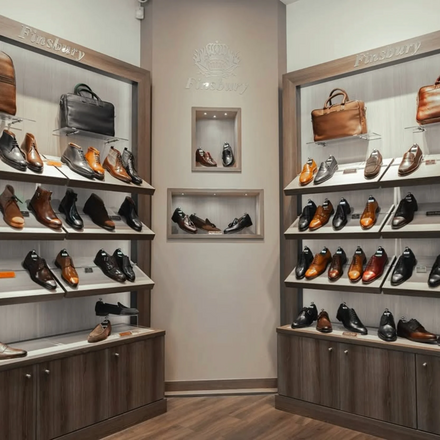Christmas business

Discover how to join the growing Santa Claus rental franchise market in Europe, with low investments and strong franchisor support to bring holiday magic to life.
The holiday season creates a high demand for festive entertainment, with Santa Claus appearances being a central attraction for events ranging from shopping malls to private parties. The Santa rental business has become a unique and profitable niche, and franchising provides an organized way to enter this seasonal market. Established brands offer entrepreneurs the resources, training, and branding needed to operate successfully, while the short-term nature of the business makes it manageable for first-time franchisees or those seeking supplementary income.
Leading Santa Claus rental franchises in Europe
Santa Claus rental franchises cater to various clients, including shopping centers, schools, private households, and corporate events. Among the most prominent franchises operating in Europe are Santa & Co., Holiday Performers Network, and Rent-a-Santa Europe, each offering distinct business models and levels of investment.
Santa & Co. operates in several European countries, including Germany, Poland, and the UK. The company offers a full package of festive characters, including Santa Claus, Mrs. Claus, elves, and even reindeer performers, making it a versatile choice for franchisees. The required investment to join this franchise ranges from twenty-five thousand to fifty thousand euros. This includes a franchise fee of approximately ten thousand euros, as well as costs for costumes, training, and marketing materials.
Holiday Performers Network focuses on high-end clientele, providing professionally trained Santa performers for upscale corporate events, luxury hotels, and exclusive private gatherings. This franchise operates in key European markets such as France, Italy, and the Netherlands. The required investment for a Holiday Performers Network franchise ranges from forty thousand to eighty thousand euros, reflecting its premium positioning. Franchisees receive access to exclusive contracts and specialized performer training programs, ensuring a high standard of service delivery.
Rent-a-Santa Europe targets smaller cities and suburban markets, making it an accessible choice for entrepreneurs with lower budgets. The initial investment starts at fifteen thousand euros, with a focus on smaller-scale events like community gatherings and private family parties. Franchisees are provided with essential costumes, a basic marketing toolkit, and access to an online booking platform.
Financial requirements and operational costs
The investment required to start a Santa Claus rental franchise varies depending on the scale of the operation and the brand selected. The franchise fee, typically ranging from five thousand to fifteen thousand euros, secures access to branding, training, and operational support. Costumes and props form another essential expense, with high-quality Santa suits, wigs, and accessories costing between two thousand and five thousand euros.
Marketing expenses are another key consideration. Brands like Santa & Co. provide franchisees with ready-to-use promotional materials, including brochures, posters, and digital content. Initial marketing campaigns, designed to establish the business locally, usually require an additional budget of one thousand to three thousand euros.
Franchisees also need to consider operational costs, including storage for costumes and props, transportation for performers, and fees for booking platforms or software provided by the franchisor. While these costs are manageable, they must be accounted for, particularly during the setup phase.
How to start
Becoming a Santa Claus rental franchisee begins with selecting the right brand and submitting an application. Franchisors typically evaluate candidates based on financial readiness, enthusiasm for the holiday season, and organizational skills. Experience in event planning or customer service, while not mandatory, is often advantageous.
Once approved, franchisees receive comprehensive support to establish their business. This includes assistance with costume procurement, performer recruitment, and location-specific marketing strategies. Many franchisors also provide digital tools, such as booking platforms and customer management software, to simplify operations.
Training is an essential part of the onboarding process. Franchises like Holiday Performers Network offer workshops on performer preparation, ensuring that every Santa delivers a consistent and professional experience. Franchisees learn techniques for managing event schedules, coordinating logistics, and maintaining customer satisfaction during the busy holiday season.
Support from franchisors
Franchisors in the Santa rental industry provide extensive support to help franchisees succeed. This includes access to high-quality costumes, which are often custom-designed to meet brand standards. Training programs cover key aspects of the business, from managing bookings to maintaining customer relationships.
Marketing is another critical area where franchisors assist. Brands like Santa & Co. coordinate national advertising campaigns, ensuring brand recognition in target markets. Franchisees benefit from localized marketing strategies, which may include participation in holiday fairs or partnerships with shopping centers.
Operational guidance is provided throughout the season. Franchisors offer advice on optimizing schedules, managing performer availability, and handling customer inquiries. For example, Rent-a-Santa Europe provides franchisees with a booking system that streamlines customer management and reduces administrative workload.
The demand for Santa Claus rental services peaks during the holiday season, making this a highly seasonal business. However, the intensity of demand during November and December allows franchisees to generate significant revenue within a short period. Shopping malls, schools, and corporate clients form the core customer base, while private parties and community events offer additional opportunities.
By joining a Santa Claus rental franchise, entrepreneurs gain access to an established brand, proven business models, and comprehensive support. The investment requirements are relatively low compared to other franchise industries, making this an attractive option for those seeking a festive and profitable venture. Franchising ensures professional standards and operational efficiency, allowing franchisees to focus on delivering memorable holiday experiences.
Featured franchises
No featured franchises
Other concepts from sector consumer services
Breaking news
Show all
Expanding premium footwear through franchising
A French footwear brand expanding through franchising, offering structured entry into premium shoe retail with established operational standards.

Franchise model in sustainable water solutions
An international franchise network focusing on water generation and distribution technologies designed for commercial and residential markets.

Milano Cosmetics franchise overview
Milano Cosmetics offers a global franchise model for professional beauty salons with defined financial terms, operational support, and...

REFAN franchise network
REFAN is a European cosmetics and perfume manufacturer offering a standardized franchise model based on private-label production and retail.



